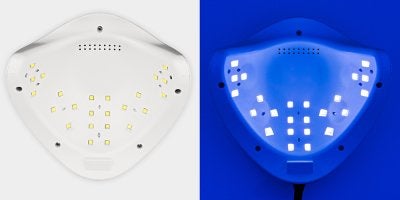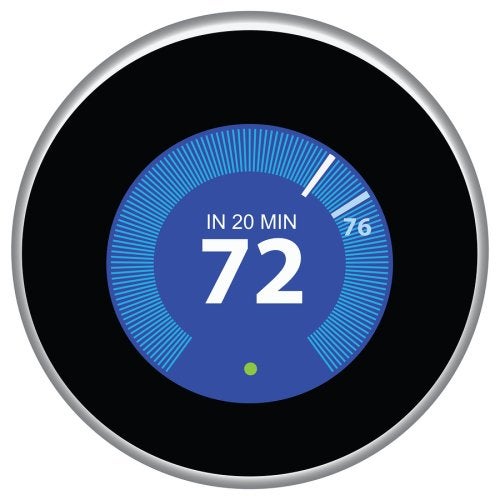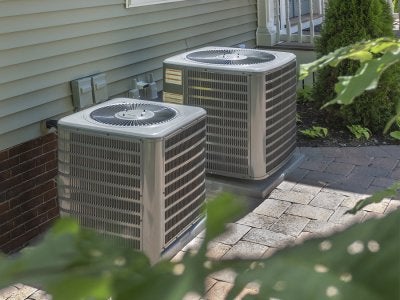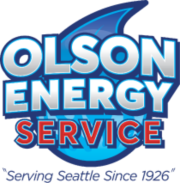-
3 Simple Ways to Make Your HVAC More Energy-Efficient
Have you ever stopped to wonder just how much energy you use heating and cooling your Seattle home every month? In fact, according to the U.S. Department of Energy , nearly half of all of the energy you pay for in your household goes toward running your heating, ventilation, and air conditioning . This means that making your heating and cooling systems run more efficiently can help you both reduce your household’s environmental impact and keep your energy expenses down. Here are some simple steps you can take for a more energy-efficient HVAC system:
Buy a programmable thermostat.
Purchasing and installing a programmable thermostat is a great way to rein in your energy usage at home. Programmable thermostats let you schedule different settings throughout the day, ensuring that you aren’t needlessly running your HVAC system late at night, or when nobody is home. The latest programmable thermostats even allow you to adjust them remotely using Wi-Fi.
Change out your air filter.
When your air filter gets clogged up with a lot of dirt and debris, it means that your HVAC system won’t be running as efficiently. Fortunately, you can forestall that problem by making sure to change out your old air filter for a new one once every month or so. The more heavily you’re relying on your air conditioning or furnace, the more frequently you will want to change your filter.
Upgrade your entire HVAC system.
The older your air conditioner or furnace is, the more inefficient it is likely to be. As time goes on, this can turn into an expensive problem. One of the best ways to reduce your energy usage is to replace your old HVAC system with a newer, more energy-efficient one. Make sure that any new HVAC equipment you buy has been certified by Energy Star, which signifies that they are among the most energy-efficient products available.
-
FAQs and Answers About Germicidal UV Lamps
If you’re concerned about the quality of the air inside your Seattle home, talk to an HVAC professional about germicidal UV lamps. These lamps are designed to eradicate many of the contaminants that take up residence inside your air conditioning vents , allowing you to breathe cleaner and healthier air at home. You may be wondering, however, just how effective these UV lamps really are. Here are some of the most commonly asked questions about germicidal UV lamps—and the answers.

How do UV lamps work? UV lamps emit ultraviolet light, which damages the DNA inside organic pollutants such as bacteria, viruses, and mold spores. When they are aimed at a certain area, UV lamps can kill as much as 99.9% of the organic contaminants in that area.
Do UV lamps work on all pollutants? UV lamps will not eliminate dust, pollen, and other non-organic pollutants. To keep your air conditioning vents clean, you should still be sure to invest in routine cleaning and maintenance from an HVAC professional.
Will I notice my UV lamps at work? The answer is most likely no. UV lamps are silent, and they emit no odor. You probably won’t even notice your lamps at work. Be careful, however, never to look directly at a UV lamp—ultraviolet light is extremely dangerous to your eyesight.
Do UV lamps require any maintenance? You can have your UV lamps checked during your routine HVAC inspections to ensure that they’re working properly. HVAC professionals generally recommend that you replace the bulbs on an annual basis.
Who can benefit from using UV lamps? Clean air is important for everybody, but it may be most important for young children, the elderly, and people who have compromised immune systems. Minimizing exposure to bacteria, viruses, and other hazardous contaminants can make a significant difference in the lives of people who are more vulnerable to illness.
-
When to Replace Your HVAC?
With the spring season just around the corner, now is an important time to consider whether you need to replace your air conditioner. In this video from Angie’s List, you will receive valuable tips and information about how to know when to replace your HVAC near Seattle . As a general rule, you should replace your air conditioning or heat pump when repairs become cost prohibited.
Whether you are gearing up to replace your air conditioner, or you simply want to service your HVAC system, you will want to make sure to book your appointment with an experienced contractor. A team of trained technicians can help you decide when it is the right time to replace your HVAC system with a brand new unit.
““
-
What Is a Ductless Heat Pump?
HVAC appliances like your air conditioner, furnace, and ductless heat pump near Seattle aim to keep you and your family as comfortable as possible in your home. Certain heating and cooling methods are more effective and efficient than others, however, which is why many of those who own homes in temperate climates choose ductless heat pumps. This is a specific type of heat pump that may best suit the needs of your living space. If you’re considering a heat pump for your home, continue on to learn a little bit about ductless heat pumps.
A heat pump can bring your home a new level of efficiency, which will reflect in your energy bills. This type of HVAC unit can actually be used to heat or cool your home, so it’s a great appliance to have all year long. A ductless heat pump is different from a standard heat pump in that it does not rely on existing ductwork to pump heated or cooled air through your home. This means that you won’t have to spend the extra money to have ducts added to your home or have your existing ductwork modified. Instead, the ductless heat pump connects to an indoor air handler.

““
-
When to Replace Your HVAC System
Your home’s HVAC near Seattle plays a significant role in keeping your family comfortable while indoors. If you’re wondering if you should replace your current system, then there are a few warning signs to keep in mind:

It’s getting old.
On average, heating and air conditioning units are designed to last about 10 to 15 years. As your HVAC system nears the end of its lifespan, it may have decreased efficiency and require more frequent repairs. If your system has reached the 10-year mark, then it may be time to pay more attention to its function to determine if it’s running as well as it once did.
It doesn’t work efficiently.
Have you noticed an increase in your monthly utility bills? If so, then your HVAC system could be at fault. Sometimes, maintenance and repair are all that’s needed to get a unit working well again but, in other cases, replacement is the better option. Also, if your boiler, furnace, or air conditioner are running for longer periods than they once did, then this can be a sign that it is time to consider replacement. When your HVAC system is running for long periods, this means that it is not cooling or warming your home as quickly as it once did. In turn, the longer that it runs, the more energy it requires, which can result in higher energy bills. If you’re ready to enjoy an HVAC system that runs efficiently, then think about replacing your old one.
It doesn’t keep you comfortable.
As HVAC systems begin to fail, they usually struggle to keep the entire home at the right temperature and humidity level. A few signs that could mean that you might benefit from a new HVAC unit include increased or decreased humidity levels, odors or noises while the system runs, and uneven cooling or heating throughout your home. Also, if the unit runs continuously and still fails to reach the set temperature, or if you frequently adjust the thermostat to try to feel more comfortable, then it may be time for a new HVAC system.
““
-
The Olson Energy Service Story
Olson Energy Service specializes in electrical, water heater, air conditioner, air duct cleaning, boiler, heat pump, and furnace services in Seattle. Family-owned and operated, Olson Energy Service has provided the Greater Seattle Area with decades of first-rate, experienced, and reliable service.
Founded by Garnett Olson in 1926, Olson Energy Service began as Olson Fuel Company, which sold coal and firewood to homes and businesses. By the 1930s, heating fuel preferences shifted towards oil, and the company expanded to include this service. Generations of Olsons have worked for Olson Fuel Company, which became Olson Energy Service in the early 1990s as its range of services grew.
Today, Olson Energy Service boasts numerous affiliations and awards and is among the premier HVAC contractors for Seattle. Our experienced staff continues to provide exceptional, professional, and quality service throughout the Greater Seattle Area and looks forward to helping you with your heating and cooling needs.
““
-
Choosing the Right Size Air Conditioner
If you’re in the market for a new air conditioner and live in the Seattle area, selecting the right sized unit for your space is essential. When an HVAC unit’s cooling capacity is too small, it will fail to keep your home at a comfortable temperature. When your A/C is too big for your home, it will use more electricity than is necessary and will make your home’s interior unpleasantly humid. Figuring out the right size air conditioner for your needs is vital for maximizing the unit’s efficiency and performance.
Measure your home’s square footage.
 Determining the size air conditioner that you need will require some measurements and a bit of math. First, measure the square footage of each of the rooms that you intend to cool. Use a tape measure to learn the length and width of one room, and write these measurements down. Next, multiply these two numbers to figure out the square footage. Complete this process for each room of the house, writing down the measurements and totals as you work. Be sure to include only areas that your central ducts reach, excluding basements, garages, and attics.
Determining the size air conditioner that you need will require some measurements and a bit of math. First, measure the square footage of each of the rooms that you intend to cool. Use a tape measure to learn the length and width of one room, and write these measurements down. Next, multiply these two numbers to figure out the square footage. Complete this process for each room of the house, writing down the measurements and totals as you work. Be sure to include only areas that your central ducts reach, excluding basements, garages, and attics.Determine your cooling capacity needs.
The next step toward finding out what size air conditioner you need is to use your measurements to determine the cooling capacity required for your home. The cooling capacity of central air systems and room air conditioners is measured using British Thermal Units (BTUs) per hour. The United States Department of Energy’s Energy Star website provides guidelines for determining the BTUs needed for your home or room’s square footage .
Consider your home’s additional factors.
Choosing the right size air conditioner can depend on a few things besides your home’s square footage. If your house receives significant sunlight or has many windows, it may need more cooling capacity than one that is shaded or allows less sunlight into the interior. Your home’s insulation will also contribute to its need for cooling capacity. Experts recommend having multiple HVAC contractors perform an estimate on your home before you make a decision about purchasing your new air conditioner.
RECENT POSTS
categories
- Uncategorized
- Air Conditioner
- Fireplace Inserts
- Fireplace Insert Installation
- Air Conditioning Installations
- Air Conditioning Units
- Air Conditioner Maintenance
- HVAC Professionals
- Heat Pump Installation
- Heating and Cooling
- HVAC Unit
- Heat Pumps
- Furnace
- Furnace Service
- Tankless Water Heaters
- Water Heaters
- Energy Efficiency
- HVAC Contractors
- Olson Energy Service
- Mini-Split Systems
- Ductless Air Conditioner
